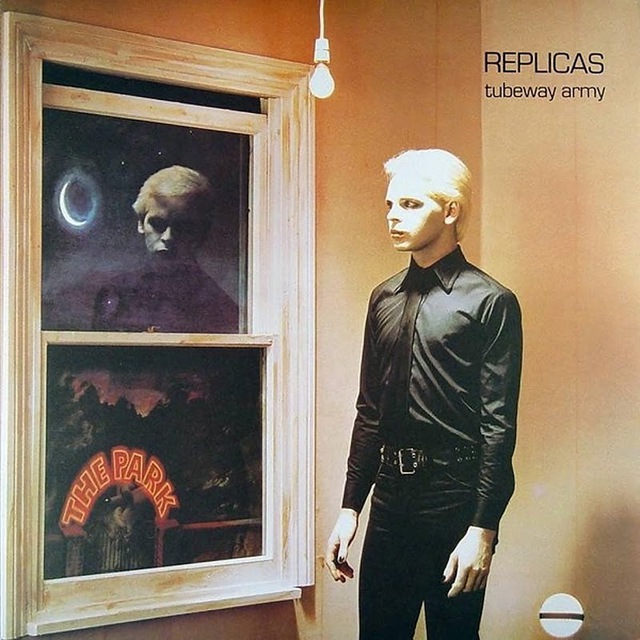As the dying embers of punk faded, this new sound seemed like something we’d been waiting for - the next phase for pop/rock...
A big leap forwards while still being rooted in the present.
In some ways, it wasn’t really that new. It’s a rock record with drums, bass, and guitar. It adds synths, but they weren’t really that new, even in the mainstream. We already had Kraftwerk breaking through three years earlier, and dance music soon embraced the technology, e.g. 1977’s I Feel Love by Donna Summer. But they were used differently here, and the combination of sounds, the vocal delivery, the visuals and marketing, all combined to make this a massive hit - not only sounding great in 1979, but also sounding great now, over 40 years later.
This was the second single from the second Tubeway Army LP Replicas. Gary Numan was Tubeway Army, and further releases were billed under his own name, even though he initially retained Gardiner (bass) and Lidyard (drums). Numan had played the other instrumentation, written the songs, produced the records, so the “solo” name made sense.
This came out in the spring of 1979. I was 17. I suspect most people of most ages find “the year when I was about 17” to be exciting musically, but in this year we had the likes of The Clash and The Stranglers moving on from punk origins to something more interesting, we had John Lydon moving on from the Sex Pistols with Public Image Limited, while the Two Tone scene introduced a new generation to Ska and gave us The Specials. The Jam had followed up All Mod Cons with Setting Sons. Talking Heads released Fear of Music, while Joy Division released the album-that-launched-a-billion shirts, Unknown Pleasures, and Gang of Four were taking the post-punk thing in whole new directions.
So this was quite a year, and yet this track still stands out as something special.
The label marketed it with the new “technology” of picture disks, and the new sound/new look were made to be played on TV. This was both diferent, and yet easily accessible. The vocal is kinda strange and understated, and yet is still rich and melodic. No wonder it was such a commercial success. I can’t believe it’s taken so long to get around to covering this track here!
Numan still performs this track of course, and I recommend his 2013 re-recording, which sets the standard for how to rework an old classic without ruining it.
An aside
If, like me, you have wondered about the quotes around the word friends in the title, Numan explains the song’s subject matter, which clears this up.
The lyrics came from short stories I’d written about what London would be like in 30 years. These machines – “friends” – come to the door. They supply services of various kinds, but your neighbours never know what they really are since they look human. The one in the song is a prostitute, hence the inverted commas. It was released in May 1979 and sold a million copies. I had a No 1 single with a song about a robot prostitute and no one knew.
